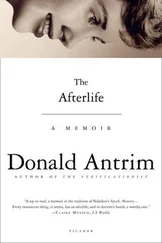“You do?” I whispered. Breathing was hard, and plates on the table looked nauseating beneath overhead light.
“Yes, Tom. We do,” confided Bernhardt, applying another squeeze. I had the sense that Bernhardt was using me, that night, as a fragile, middle-aged totemic object signifying childhood and — if I know him, with his fondness for D. W. Winnicott, the Squiggle game, and various improvisational-play theories that owe a lot to so-called radical avant-garde theater and the whole “process over performance” approach to role playing and creative living in general — Bernhardt was using me, as I was saying, as a human totem signifying childhood and the depression that grows with the healthy child’s capacity for love and hatred in mature relationships. I know that Bernhardt employs dolls, sandboxes, crayons, and various stuffed animals in his practice with adults, often with remarkable results. Now I was the doll, Bernhardt the big man holding me; and the world, because I floated above it, became magical and safe.
I was sweating. I felt cared for. My hand opened. The cinnamon-raisin toast, the few slices of toast, dropped, broken and inedible, to the floor.
“That’s better,” growled the voice in my ear, the menacing, nurturing, comforting voice of the adult.
I placed my hands over Bernhardt’s. It is true that my arms were pressed beneath Bernhardt’s arms wrapped tightly around me. Nonetheless, my poor arms were free, more or less, from the elbows down; in other words, I was able to move my hands a small distance, to wiggle my trapped arms, and to reach up and hold those hands holding me.
My palms were dusted with crumbs. I wiped the crumbs on Bernhardt. People were watching, the entire crowded, silent restaurant. I understood, gazing sadly at my colleagues’ faces, that this was an occasion for embarrassment. But why? For what reason?
I felt woozy. It was as if I were far, far off the floor. I closed my eyes and hyperventilated — a dozen short breaths. I did not ask Bernhardt to set me down. Standing unsupported was, I felt, out of the question; and I had the impression, anyway, that I was drifting upward, rising farther and farther from the ground.
It was then, while Bernhardt squeezed and I held him — it was then that I began my ascent toward the ceiling. Up I went. I have to confess that I felt, ascending, a bit scared. I am not as a rule happy or comfortable on rocking boats or on airplanes thrown by turbulence, or on the average amusement-park ride, or even cruising in an automobile on a hilly lane; and I can say from experience — I think people who endure motion sickness will concur — that the first sensations of nausea are invariably accompanied by a swift and debilitating panic, a flush of hotness and fear that grows intense and then becomes a chief symptom of the illness. It is true — and on this point, as well, I believe fellow sufferers will agree — that the worst motion sickness occurs when one is helpless to predict or control the rising and the falling, the dipping and soaring and that sudden, excruciating ascension of a speeding car or tossing plane, or the awful pitching and rolling on board a rusty boat. The worst sickness comes when one is a passenger.
Bernhardt squeezed and up I went, up toward the Pancake House ceiling, drifting higher to float over the heads of clinicians and waitresses gathered around tables piled with waffles, uneaten bacon, biscuits. How I wished I had been sensible and ordered eggs over easy. But it was too late, the pancakes were inside me, and I was hovering beneath the ceiling, up beneath pendulous, institutional lights, and the air against my face felt warm and still, and friends’ faces below me appeared pale and minuscule, and I could smell Bernhardt’s soap and his dry skin, those bad clothes and the man’s breath like too-sweet flower petals brushing my face, filling my nose and my mouth with rotten perfume. I felt the big man’s arms wrapped around me. I held on as best I could, reached up with my hands and clasped his tightly in mine to keep from floating too high or, alternatively, from losing balance and falling forward across chairs and tables. Outside, the wind stormed in off the silver river that flows through our city; and I imagined, briefly and stupidly, that if I could only sail over near a window, I might be carried out of the Pancake House, back toward town and, with any luck, home — up and away over the delightful covered bridge and the book factory and surrounding neighborhoods crowded with porno theaters, tattoo parlors, all those intriguing and dangerous barrooms — straight back to Jane.
Possibly, the wind might carry me away from Jane. Out over Battlefield Grove, for instance, with its gloomy walking trails through dense, uncut forest, and its prominent, hilltop cannon aimed directly, perpetually, toward the prehistoric burial mound in the valley below.
It occurred to me that flying on the wind was a precious, extremely literary idea — not in the least the sort of psychological concept I can feel good about — and that, furthermore, even if it were truly possible to travel through the air, a very short journey of this nature would, undoubtedly, leave me sick as a dog, as they say.
At this point I knew that I had gone into an emotionally disassociated state — exactly the kind of out-of-body condition that is seen among victims of trauma or abuse.
Bernhardt, whether alert to this fact or not, was attempting to destroy me, apparently through some form of metaphoric patriarchal rape. The intimacy between us was real and devastating. I was, I felt, in danger of a psychoneurotic splitting off — a costly form of self-protection — the proof of which was my thoroughly tactile appreciation of the man’s proximity, of his body’s pressure, its aggressive and hot contact with mine; and, simultaneous with this recognition of our physical linking, my utterly convincing sensation of incorporeal ascension and a perceived flight, or something like a flight — a subjective projection of, I suppose, for want of a better word, the Self — out from my body, away from the hideous man, toward the restaurant’s foam-tile ceiling, toward the roof and around the room. I say “the man” rather than “Richard Bernhardt” because I believe that, to a large extent, the threat to my sanity was not personal in the usual meaning of that word, but generic and rooted in unconscious life.
I loved this awful man, and he was deeply in love with me. In order to bear this knowledge and the attendant physical violation, our embrace, I had no recourse but escape into a transient psychotic breakdown and its exhilarating symptoms. Was this, my withdrawal from tenderness, what was meant by “astral projection”? Could I, in this momentary awakening to love, break the bonds of gravitation, soar heavenward, and explore the unknown, infinite Universe?
It was certainly worth a try. There was nowhere to go but upward. Freedom waited. But no, the ceiling was in the way. And beyond the ceiling’s high-wattage lighting fixtures and plain white tiles would come, I suspected, a formidable roofing structure. Wood and steel, bolts and nails and tar paper. But could these ordinary building materials really be obstacles? Already I was gaining elevation, and the world, as I saw it, was changing shape and form. The fact that I knew my liftoff to be an illusion — a cluster of persuasive somatic sensations expressing sexual fantasies as externalized visual and auditory distortions, to be exact — did not lessen the shock I felt when I looked down and saw my colleagues. These kind men and women, Manuel and Maria and Dan Graham and Sherwin Lang and Elizabeth Cole and, well, Peter Konwicki and his child psychologists, all these more or less friendly spectators were growing, to my eyes, smaller in size; they looked like people seen from an airplane ascending rapidly after its takeoff. But this is, I think, greatly reductive. To speak at all concisely about an hallucinatory episode is to risk the impression of something that might yield to intellection and the premeditated interventions of the Will. It is another matter altogether to realize, in that moment of flight from passion and from one’s body — in that moment when your ears are loudly ringing and your stomach is doing its somersaults; when your friends and associates have turned suddenly and strangely into freakish dolls arranged around play-size tables; when your mouth has gone dry while your skin and clothes feel warmly damp all over; when your blood is racing while your heart in your chest beats so fiercely and so erratically that you fear it may fail; when you wonder, in other words, if this is how it feels to approach death, because it is conceivable that this is no ordinary anxiety attack, not at all, possibly this is something incredible and dreaded, something longed for and unstoppable and terribly, terribly final — it is another matter entirely to realize, when reflecting on rare nightmares like these, how weak and incomplete human intellection really is.
Читать дальше












